
Akko Port: A Timeless Maritime Gem
Akko Port, nestled in the enchanting city of Akko (also known as Acre), is a mesmerizing blend of history, culture, and maritime beauty. This ancient port, once a bustling hub of trade and conquest, now offers a captivating glimpse into the past while providing a vibrant setting for modern-day exploration. Wander through the narrow, winding streets of the old city, where you'll be greeted by the scent of freshly caught seafood and the sight of fishermen mending their nets. The port's historic architecture, with its well-preserved fortress walls and ancient structures, tells tales of empires gone by, from the Phoenicians to the Crusaders and the Ottomans. The Al-Jazzar Mosque, a stunning example of Ottoman architecture, stands proudly near the port, offering panoramic views of the Mediterranean Sea. For those with a taste for adventure, the port offers numerous activities, from sailing excursions to diving into the clear blue waters. The local markets and seafood restaurants serve a delectable array of dishes, ensuring that your culinary experience is as rich as the history surrounding you. Don't miss the chance to explore the subterranean Crusader tunnels, a hidden gem that reveals the intricate network beneath the city's surface.
Local tips in Akko Port
- Visit early morning to see the fishermen bringing in their catch.
- Wear comfortable shoes for exploring the narrow, cobblestone streets.
- Check out the local seafood restaurants for a fresh meal.
- Carry a hat and sunscreen, especially during the summer months.
- Take a guided tour to fully appreciate the historical significance of the port.
Akko Port: A Timeless Maritime Gem
Akko Port, nestled in the enchanting city of Akko (also known as Acre), is a mesmerizing blend of history, culture, and maritime beauty. This ancient port, once a bustling hub of trade and conquest, now offers a captivating glimpse into the past while providing a vibrant setting for modern-day exploration. Wander through the narrow, winding streets of the old city, where you'll be greeted by the scent of freshly caught seafood and the sight of fishermen mending their nets. The port's historic architecture, with its well-preserved fortress walls and ancient structures, tells tales of empires gone by, from the Phoenicians to the Crusaders and the Ottomans. The Al-Jazzar Mosque, a stunning example of Ottoman architecture, stands proudly near the port, offering panoramic views of the Mediterranean Sea. For those with a taste for adventure, the port offers numerous activities, from sailing excursions to diving into the clear blue waters. The local markets and seafood restaurants serve a delectable array of dishes, ensuring that your culinary experience is as rich as the history surrounding you. Don't miss the chance to explore the subterranean Crusader tunnels, a hidden gem that reveals the intricate network beneath the city's surface.
Iconic landmarks you can’t miss
Knights' Halls, Old Akko
Discover the rich history and stunning architecture of the Knights' Halls in Old Akko, a UNESCO World Heritage Site full of medieval charm.
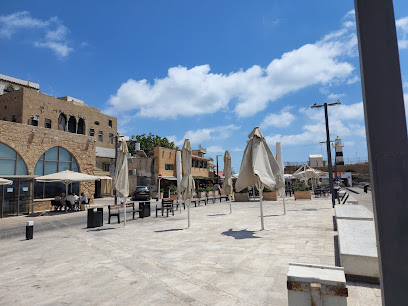
Templar's Tunnel
Explore Templar's Tunnel in Acre, a captivating historical landmark showcasing ancient Crusader pathways and rich archaeological significance.
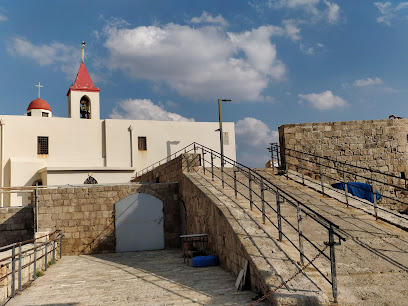
The Old City
Explore The Old City of Acre, a UNESCO World Heritage Site rich in history, stunning architecture, and vibrant local culture on the Mediterranean coast.
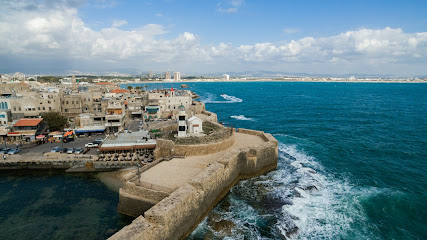
Treasures in the Walls Museum
Explore the rich cultural heritage of Acre at Treasures in the Walls Museum, where history comes alive through captivating exhibits and immersive experiences.
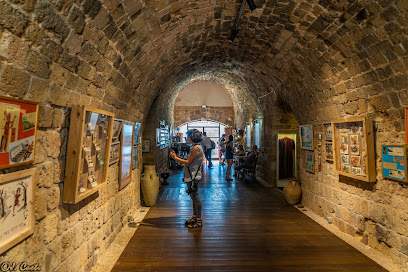
Acre port
Discover the charm of Acre Port, where stunning marina views meet rich history and delectable local cuisine in Israel's vibrant coastal city.
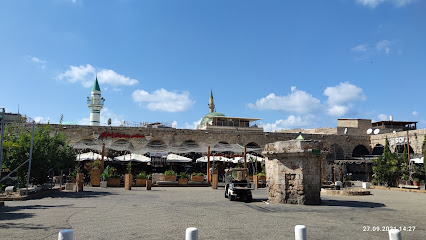
Queen Cruises Malkat Akko Acre
Discover the beauty of Acre from the water with Queen Cruises, where history meets breathtaking views on the Mediterranean.
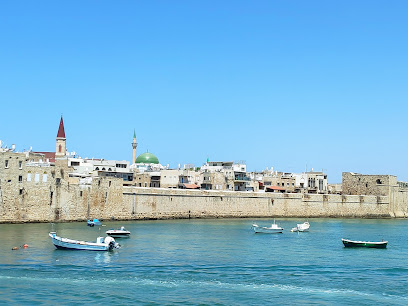
Akko Old City Waterfront Wall
Experience the enchanting beauty and rich history of the Akko Old City Waterfront Wall, a UNESCO World Heritage site in Israel's ancient port city.
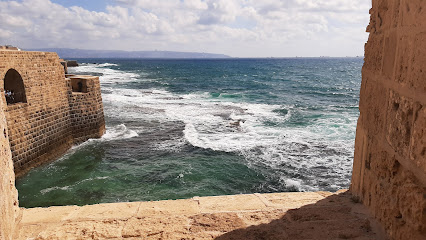
Old Akko Walls
Discover the historic Old Akko Walls, a UNESCO Heritage site blending breathtaking views with rich cultural history in the heart of Acre, Israel.
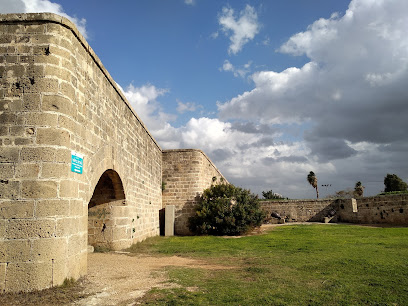
The Hospitaller Fortress
Discover the ancient marvels of The Hospitaller Fortress in Acre, a historic site that narrates the epic tales of the Crusaders and their legacy.
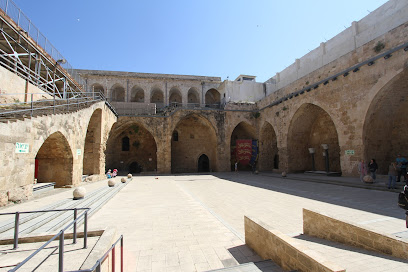
اسوار عكا
Explore the enchanting city of Akko, a historical landmark where cultures collide, offering stunning architecture, rich history, and delicious local cuisine.
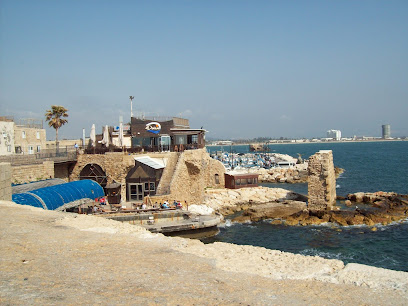
Unmissable attractions to see
קיר יפה
Discover the rich history and stunning architecture of Acre, a UNESCO World Heritage site, where ancient meets modern on the Mediterranean coast.
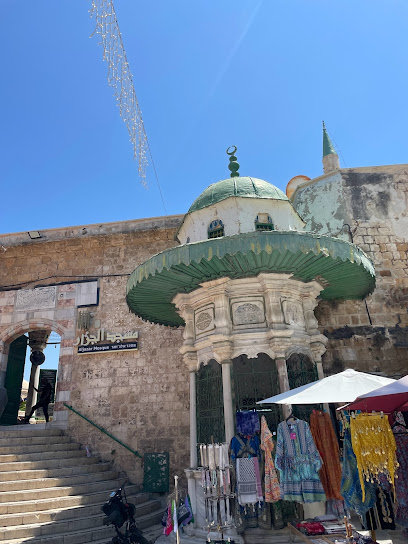
Beit Luzinan Street Art
Discover Beit Luzinan Street Art in Acre, where vibrant murals and rich history collide to create an unforgettable cultural experience.
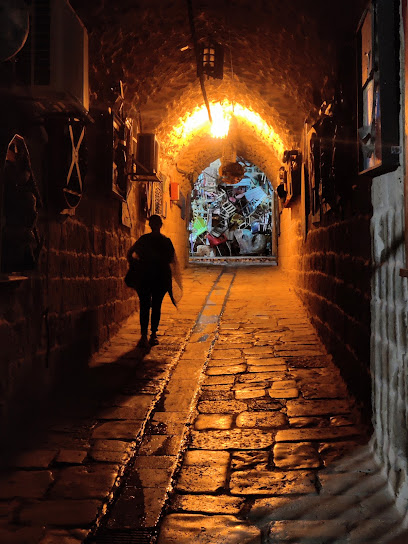
Essential places to dine
Uri Buri
Discover Uri Buri in Acre: Where Fresh Seafood Meets Innovative Cuisine Amidst Stunning Mediterranean Views.
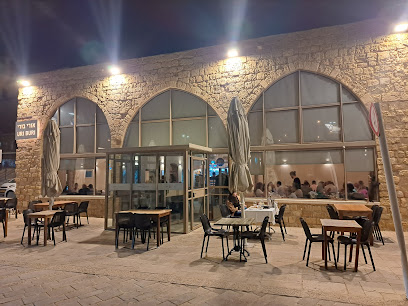
Restaurant Doniana
Experience authentic Mediterranean flavors at Restaurant Doniana in Acre - where culinary excellence meets vibrant ambiance.
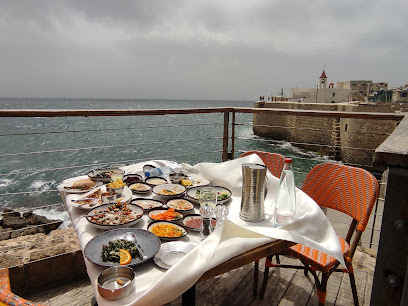
El Marsa Restaurant מסעדת אל מרסא
Discover the flavors of fresh seafood at El Marsa Restaurant in Acre - where every dish tells a story.
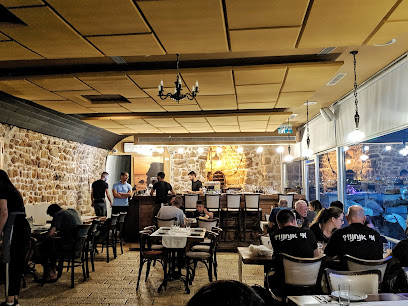
Abu Christo
Discover authentic Mediterranean flavors at Abu Christo in Kafr Yasif – where every dish tells a story.
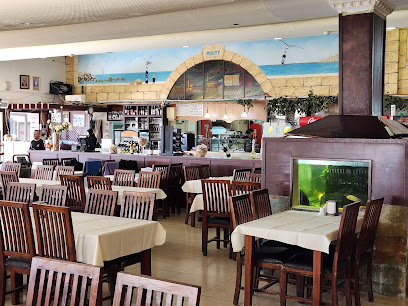
Roots רותס
Experience authentic kosher cuisine at Roots in Acre - where tradition meets innovation in every delicious dish.
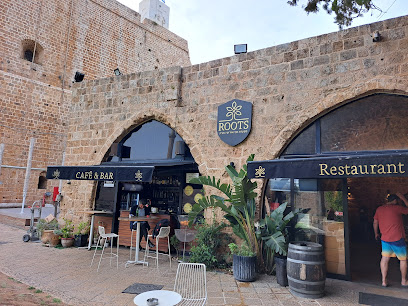
MINA
Experience exquisite Mediterranean cuisine at MINA in Acre—where fresh ingredients meet vibrant flavors in an inviting atmosphere.
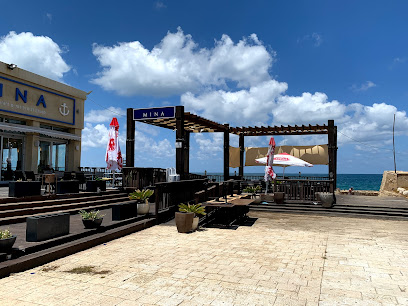
Fishers' Restaurant מסעדת הדייגים
Experience fresh seafood delights at Fishers' Restaurant in Acre - where culinary tradition meets breathtaking Mediterranean views.
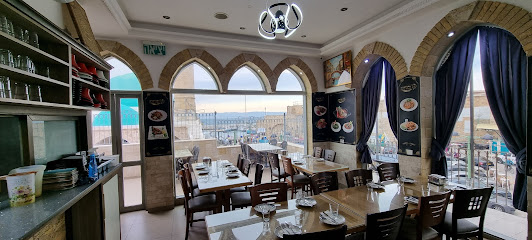
פלוקה
Discover Floka: where local flavors meet modern dining in the historic city of Acre.
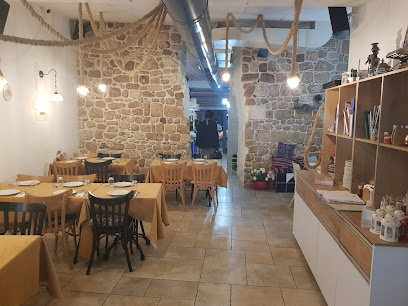
Siran Restaurant
Experience authentic Israeli cuisine at Siran Restaurant in Acre, where tradition meets flavor in a vibrant coastal setting.
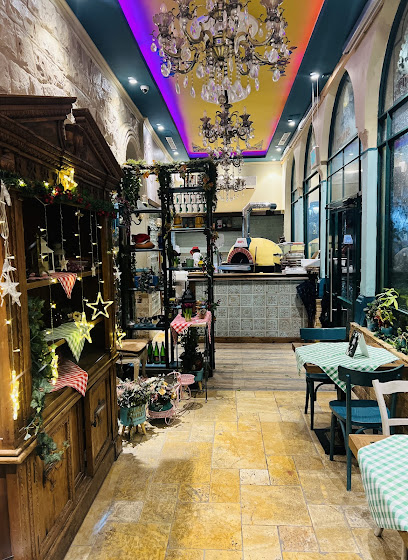
Restaurant & Cafe Khalifa
Experience authentic flavors at Restaurant & Cafe Khalifa in Acre's historic Khan a-Shawarda, where tradition meets culinary innovation.
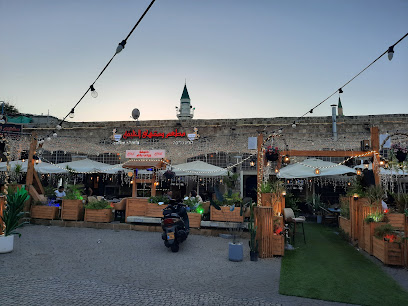
Markets, malls and hidden boutiques
The White Market
Discover the charm of The White Market in Acre, where local crafts, delicious food, and a vibrant atmosphere await every visitor.
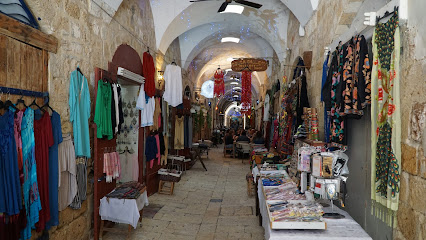
Duck You Akko
Explore Duck You Akko, a charming toy store in the heart of Acre, offering unique toys and a whimsical shopping experience for all ages.
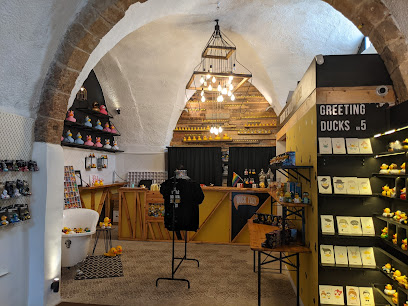
David Miro Souvenirs & Art Copper Works
Explore the artistic charm of Acre at David Miro Souvenirs & Art Copper Works, where handcrafted copper treasures await every traveler.
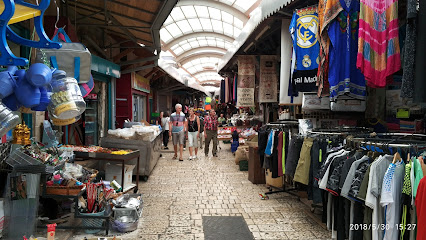
Castro
Discover Castro in Acre: A stylish clothing store offering a blend of modern fashion and rich historical ambiance in the heart of Israel.
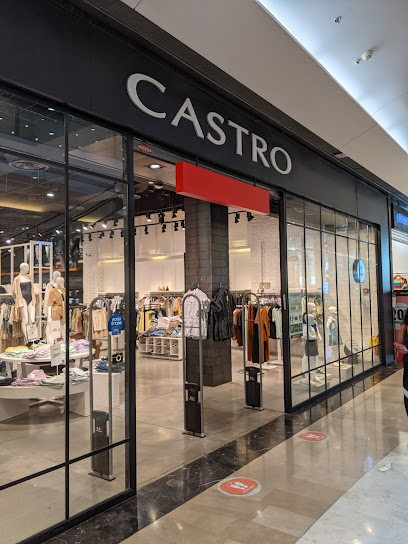
תכשיטים ומזכרות בולוס אליאס
Explore the unique treasures of Acre at Tzchuzim U-Mizkarot Boulos Elias, where every souvenir tells a story.
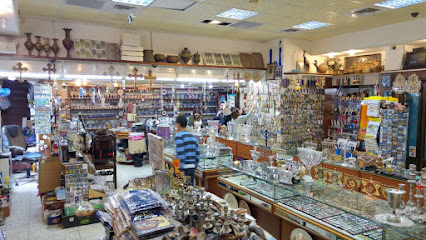
Home Style
Explore Home Style in Acre for unique home goods that reflect local artistry and provide the perfect touch to your living space.
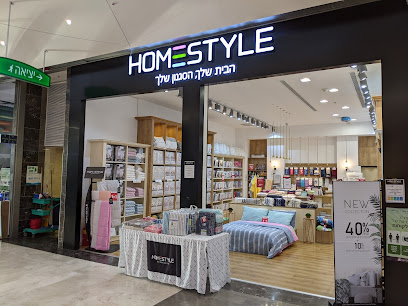
Paul Elias
Discover unique souvenirs and local treasures at Paul Elias, the quintessential store for tourists in the heart of Acre.
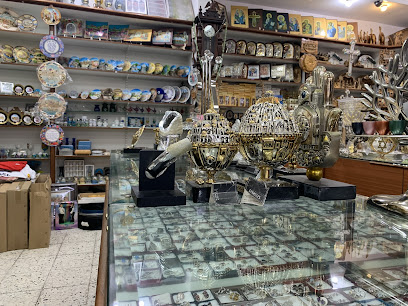
ML
Discover Acre's vibrant local store, where authentic Israeli culture meets unique handcrafted products and delicious local delicacies.
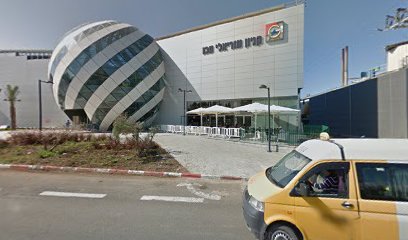
Top Ten
Explore Top Ten in Acre for trendy fashion accessories that blend local culture with modern style, perfect for every tourist's wardrobe.
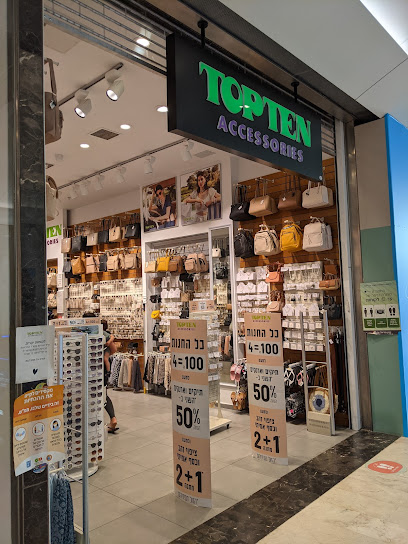
Donna Victoria
Discover exquisite lingerie styles at Donna Victoria, Acre's premier destination for fashion-forward shoppers seeking elegance and quality.
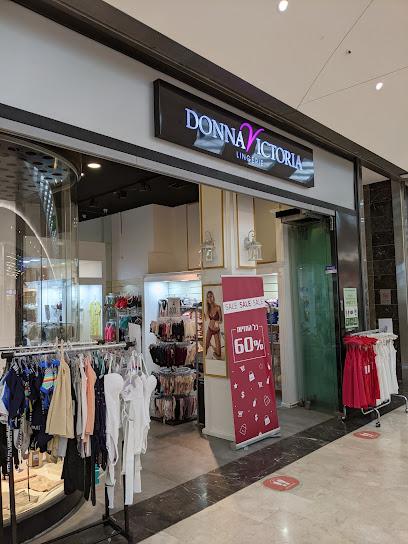
Essential bars & hidden hideouts
Abu Christo
Experience the authentic taste of Mediterranean cuisine at Abu Christo, a vibrant restaurant in Kafr Yasif, Israel, perfect for food lovers.
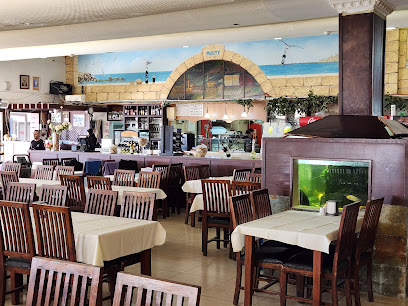
Fishers' Restaurant מסעדת הדייגים
Discover the flavors of the Mediterranean at Fishers' Restaurant, a seafood haven in the heart of historic Acre, Israel.
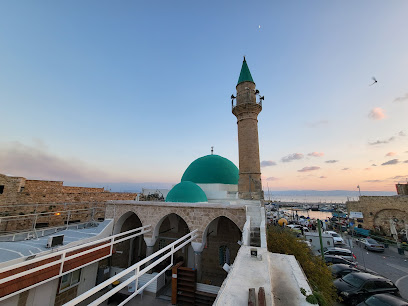
The Pisani Port Restaurant
Experience the authentic flavors of the Mediterranean at The Pisani Port Restaurant in the historic city of Acre, where every meal tells a story.
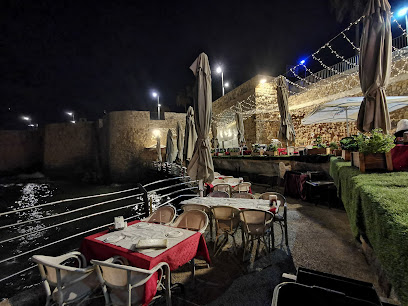
Sama
Experience exceptional dining at Sama, a gastropub in Acre with stunning views and a diverse menu that delights every palate.
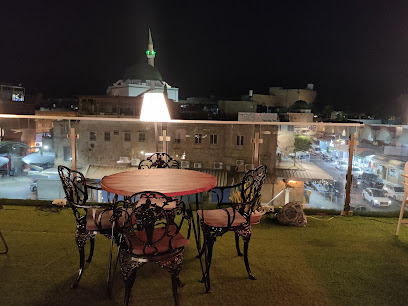
Marsa Bar מרסא בר
Experience the vibrant nightlife of Acre at Marsa Bar, where delicious drinks and stunning waterfront views create the perfect atmosphere for relaxation.
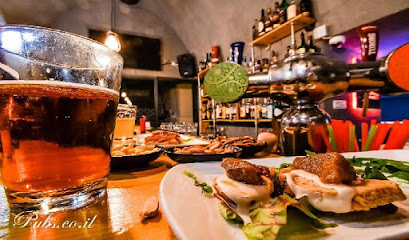
BAR 11
Dive into the lively music scene at BAR 11 in Acre, where unforgettable performances and good vibes await every night.

קריון עכו עתיקה
Experience the rich flavors of local cuisine at קריון עכו עתיקה, a restaurant nestled in the historic city of Acre, surrounded by ancient beauty.
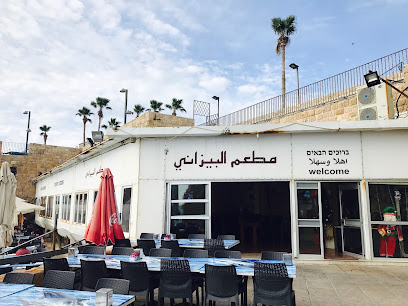
הכנאפה של קשאש
Savor the authentic taste of handmade Kanafeh at Kashash, the hidden gem of Acre where tradition meets culinary excellence.
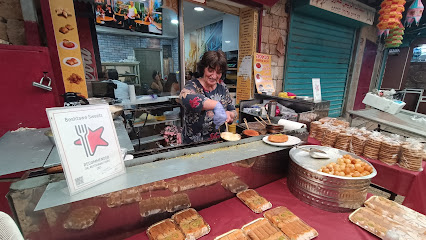
Tamar's Bar @ Akotika
Experience the vibrant atmosphere and local flavors at Tamar's Bar in Acre, a perfect spot for relaxation and socializing.
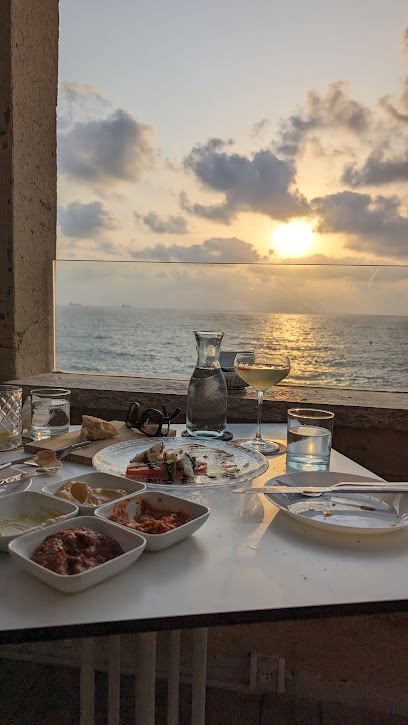
ZEINA BAR
Experience the flavors of Acre at Zeina Bar, where traditional cuisine meets modern dining in a vibrant atmosphere.
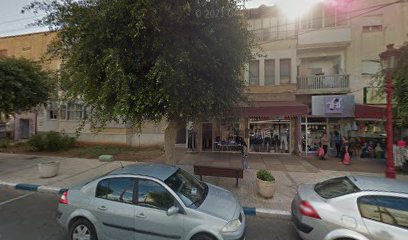
Local Phrases
-
- Helloשלום
[Shalom] - Goodbyeלהתראות
[Lehitraot] - Yesכן
[Ken] - Noלא
[Lo] - Please/You're welcomeבבקשה
[Bevakasha] - Thank youתודה
[Toda] - Excuse me/Sorryסליחה
[Slicha] - How are you?איך אתה?
[Eich Ata?] - Fine. And you?טוב. ואתה?
[Tov. Ve'ata?] - Do you speak English?האם אתה מדבר אנגלית?
[Ha'em Ata Medaber Anglit?] - I don't understandאני לא מבין
[Ani Lo Mevin]
- Helloשלום
-
- I'd like to see the menu, pleaseאני רוצה לראות את התפריט, בבקשה
[Ani Rotze Lir'ot Et Ha'tafrid, Bevakasha] - I don't eat meatאני לא אוכל בשר
[Ani Lo Ochel Basar] - Cheers!לחיים!
[L'chaim!] - I would like to pay, pleaseאני רוצה לשלם, בבקשה
[Ani Rotze Leshalem, Bevakasha]
- I'd like to see the menu, pleaseאני רוצה לראות את התפריט, בבקשה
-
- Help!עזרה!
[Ezrah!] - Go away!לך לך!
[Lech Lech!] - Call the Police!קרא למשטרה!
[Kara Lamesh'tara!] - Call a doctor!קרא לרופא!
[Kara Larofe!] - I'm lostאני אבוד
[Ani Avud] - I'm illאני חולה
[Ani Choleh]
- Help!עזרה!
-
- I'd like to buy...אני רוצה לקנות...
[Ani Rotze Liknot...] - I'm just lookingאני רק רואה
[Ani Rak Ro'eh] - How much is it?כמה זה עולה?
[Kama Ze Ole?] - That's too expensiveזה יקר מדי
[Ze Yakar M'odi] - Can you lower the price?האם אתה יכול להוריד את המחיר?
[Ha'em Ata Yachol Lehorid Et Ha'machir?]
- I'd like to buy...אני רוצה לקנות...
-
- What time is it?מה השעה?
[Ma Ha'sha'a?] - It's one o'clockהשעה חד
[Ha'sha'a Chad] - Half past (10)חצי לעשר
[Chatzi La'eser] - Morningבוקר
[Boker] - Afternoonצהריים
[Tzohorayim] - Eveningערב
[Erev] - Yesterdayאתמול
[Etmol] - Todayהיום
[Ha'yom] - Tomorrowמחר
[Mahar] - 1אחת
[Achat] - 2שתיים
[Shtayim] - 3שלוש
[Shalosh] - 4ארבע
[Arba] - 5חמש
[Chamesh] - 6שש
[Shesh] - 7שבע
[Sheva] - 8שמונה
[Shmoneh] - 9תשע
[Tisha] - 10עשר
[Esreh]
- What time is it?מה השעה?
-
- Where's a/the...?איפה נמצא/ת?
[Eifo Nimtza/t?] - What's the address?מה הכתובת?
[Ma Ha'ktoovet?] - Can you show me (on the map)?אתה יכול להראות לי (על המפה)?
[Ata Yachol Leharaot Li (al Ha'mapa)?] - When's the next (bus)?מתי האוטובוס הבא?
[Matai Ha'otobus Ha'ba?] - A ticket (to ....)כרטיס (ל...)
[Kartis (l...)]
- Where's a/the...?איפה נמצא/ת?
History of Akko Port
-
Akko Port, known as Acre in ancient times, has been a crucial maritime hub since the Phoenician era. Its strategic location along the Mediterranean Sea facilitated trade and cultural exchanges among ancient civilizations, including the Egyptians, Greeks, and Romans. Archaeological discoveries in the region, such as pottery and inscriptions, highlight Akko's role as a thriving port city that connected various cultures.
-
During the 12th century, Akko Port became a key stronghold for the Crusaders after the First Crusade. The city was fortified with impressive walls and a bustling port that served as a gateway for European forces. The architecture from this period, including the Knights Templar's fortress, reflects the military and religious significance of the port in the Crusader states.
-
With the Ottoman conquest in the 16th century, Akko Port underwent significant development. The Ottomans established Akko as an administrative center, enhancing its port facilities to support trade across the empire. This period saw the construction of new buildings, including the iconic Al-Jazzar Mosque, which remains a central landmark of Akko today.
-
In World War I, Akko Port played a strategic role for the British forces as they sought to control the region. The port was utilized for military logistics and supply routes, contributing to the eventual defeat of the Ottoman Empire in the area. This period marked a shift in Akko's significance from a local trading hub to a point of military interest.
-
In recent decades, Akko Port has witnessed a cultural revival, driven by tourism and heritage conservation efforts. The city has been recognized as a UNESCO World Heritage Site for its well-preserved historical sites, including the port area. The vibrant markets and cultural festivals celebrated in the port neighborhood reflect Akko's diverse heritage, showcasing a blend of Jewish, Muslim, and Christian influences.
Akko Port Essentials
-
Akko Port is easily accessible from other neighborhoods in Akko. If you're coming from the Old City, it's just a 10-15 minute walk along the scenic waterfront promenade. For those coming from Haifa, you can take a train to Akko's central train station, which is approximately 2 km from the port. From the train station, local buses or taxis can take you directly to the port area.
-
Akko Port is a compact area, making it easy to explore on foot. Bicycles are also a popular option, with rental stations available nearby. Local buses connect the port to other parts of Akko and neighboring cities. If you prefer more convenience, taxis are readily available for short trips within the area.
-
Akko Port is generally safe for tourists, but standard precautions are advisable. While there are no specific high-crime areas targeting tourists in the port, petty thefts can occur in crowded spots. Always keep an eye on your belongings, especially in busy markets or near popular attractions. Avoid poorly lit areas at night.
-
In case of an emergency, dial 100 for the police, 101 for medical assistance, and 102 for fire services. Akko has several hospitals and clinics, and it is advisable to have travel insurance that covers emergencies. Pharmacies and first-aid services are also available in the area.
-
Fashion: Do dress modestly, particularly when visiting religious sites. Avoid wearing beachwear outside of the beach area. Religion: Do respect local customs, especially during prayer times. Public Transport: Do be courteous and offer your seat to the elderly. Don't eat or drink on public buses. Greetings: Do greet locals with a smile and a friendly 'Shalom'. Eating & Drinking: Do try local street food and enjoy meals at port restaurants. Don't waste food or refuse offers of hospitality.
-
To experience Akko Port like a local, visit the fish market early in the morning for the freshest catches and local delicacies. Engage with local fishermen and vendors to learn about their traditions. Try to catch a sunset by the port, a favorite local pastime. Don’t miss the local eateries that serve traditional Akko dishes, and consider joining a guided food tour to discover hidden culinary gems.
Nearby Cities to Akko Port
-
Things To Do in Acre
-
Things To Do in Nahariya
-
Things To Do in Haifa
-
Things To Do in Rosh HaNikra
-
Things To Do in Nazareth
-
Things To Do in Zikhron Ya'akov
-
Things To Do in Safed
-
Things To Do in Tyre
-
Things To Do in Tiberias
-
Things To Do in Caesarea
-
Things To Do in Hadera
-
Things To Do in Beit She'an
-
Things To Do in Umm Qais
-
Things To Do in Marjayoun
-
Things To Do in Netanya













